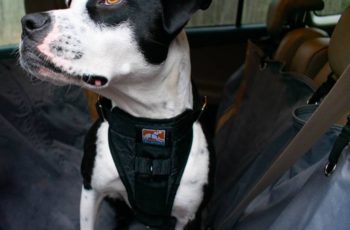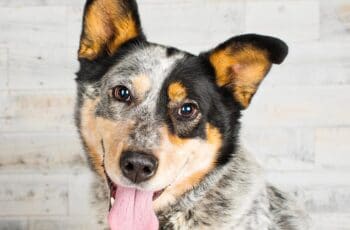As a dog owner, potty training is one of my biggest milestones. After all the dedication and hard work, it’s so discouraging when our furry friend seems to take a step backward and start having accidents in the house again.
But before you get too frustrated, it’s important to understand that dog potty training regression is actually quite common – and there are ways to fix it!
Dog Potty Training Regression – Causes & Solutions
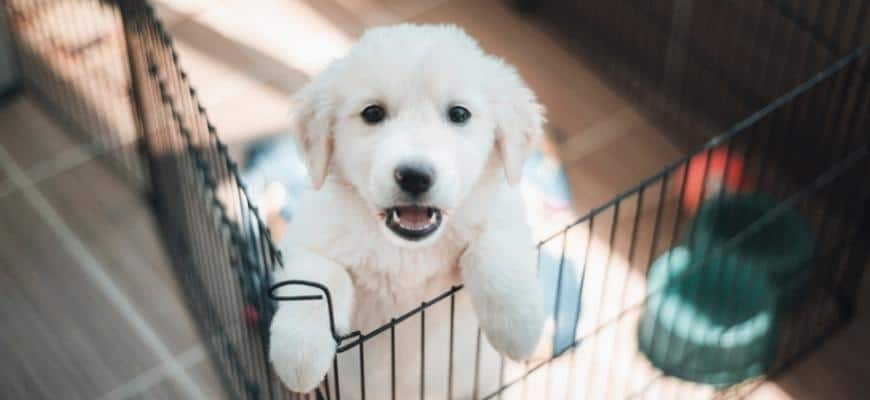
Don’t worry, you’re not alone. In this blog post, we’ll explore some of the most common causes of potty training regressions in dogs and offer some solutions so you can get your pup back on track.
Reasons Your Dog Might Regress
Potty training regressions are actually quite common among dogs. We’ll explore some of the most common causes and offer some solutions so you can get your dog back to having good potty manners in the house.
A change in routine
One of the most common causes of potty training regressions is a change in routine. Dogs are creatures of habit, and they thrive on routine. If there has been a recent change in your dog’s routine (e.g., a new baby in the house, a move to a new home, etc.), that can be enough to throw them off and cause them to have an accident.
Changes in routine can be things like:
- A new baby in the house
- A move to a new home
- A change in the family’s work schedule
- A change in the dog’s diet, exercise, and daily or sleeping routine
The best solution for house training regression is gradually introducing your dog’s previous routine and keeping it consistent. Take them out to potty at the same times every day, stick to their regular feeding schedule, and provide them with plenty of exercise.
Lack of supervision
It is extremely important to supervise your dog closely when potty training them. If you’re not there to help them remember what they’re supposed to do, they may have an indoor accident and other problematic behaviors.
If you see your dog having an accident, you can quickly take them outside to finish the process. This will help ensure that they learn where they’re supposed to go and that they don’t start reverting to their old potty training habits.
Some things to look for while supervising:
- Sniffing around
- Circling
- Whining or whimpering
- Excessive licking of genitals
The best solution for supervising a dog while potty training is to monitor them at all times and be ready to intervene if they have accidents. There are ways to supervise your pet that will make it easier for you to retrain them. For example, have your dog on a leash that is attached nearby so you can immediately see the signs and take them out.
Lack of consistent rewards
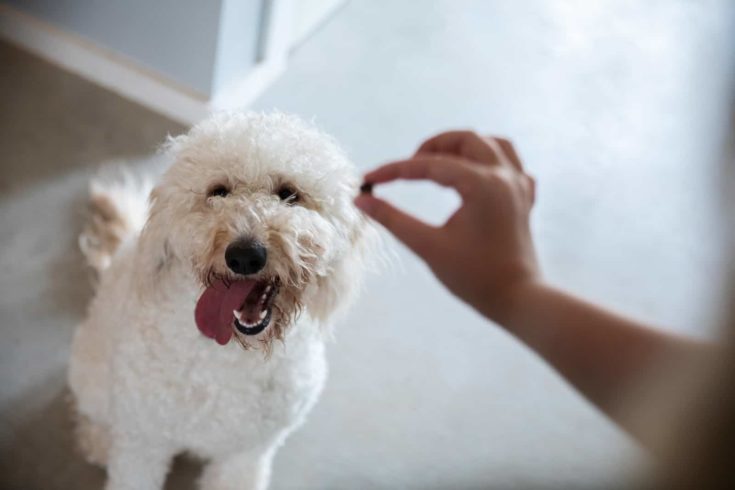
Dogs learn best through positive reinforcement, so it’s important to consistently reward your dog for going potty outside. If you only sometimes give them a treat or verbal praise when they use the bathroom correctly, they may get confused.
Some rewards you can use for positive reinforcement training while potty training include:
- Treats
- Verbal praise
- Petting your dog
- Playing with their favorite toy
Stress or anxiety
Another common issue of potty training regressions is stress or anxiety. If your dog is stressed or anxious about something (e.g., thunderstorms, fireworks, being left alone), that can also lead to accidents.
Some reasons that can cause stress and anxiety would be:
- Separation anxiety
- Fear of loud noises (thunderstorms, fireworks)
- Fear of people or other animals
- Anxiety caused by changes in routine
- Reacting to changes in their environment (new baby in the house, move to a new home)
- Changes in potty routine
Medical reasons
Some medical conditions can also cause potty training regressions. If your dog is having accidents and there doesn’t seem to be any other explanation, it’s always best to consult with your veterinarian to rule out any potential medical issues.
Health conditions often have symptoms for conditions such as:
- Urinary tract infection
- Kidney stone
- Bladder stone
- Bladder infection
- Diabetes
- Gastrointestinal issues
- Inflammatory bowel disease (IBD)
- Doggy dementia (known as canine cognitive dysfunction) in older dogs
- Kidney disease or infection
There are, of course, more to look out for when diagnosing why your dog is regressing. But the best course of action is that if regular potty training doesn’t work, or it seems like your dog is having a hard time holding it, take them to a vet to rule out anything.
Solutions for Potty Training Regression
The first step is to rule out any medical conditions that could cause the regression. If your dog is suddenly having accidents after being potty trained for months, it’s possible there’s an underlying health issue at play. So, take them to the vet to rule that out first.
Once you’ve ruled out any medical causes, it’s time to work on a solution. If your dog is regressing because of stress or anxiety, there are a few things you can do to help them feel more comfortable. Some of those steps can include:
- Providing a safe and quiet place for them to relax
- Avoiding loud noises or sudden changes in the environment
- Not leaving them alone for long periods of time
- Regular exercise to help reduce stress
- Training them with positive reinforcement
- Decreasing the time between breaks for a while
- Regular bathroom breaks on a schedule
For example, you can try adding an extra potty break into their routine or giving them a special toy or treat that they only get during potty time. You might also want to consult with a behaviorist or trainer who can help you identify the root of the problem and come up with a plan to address it.
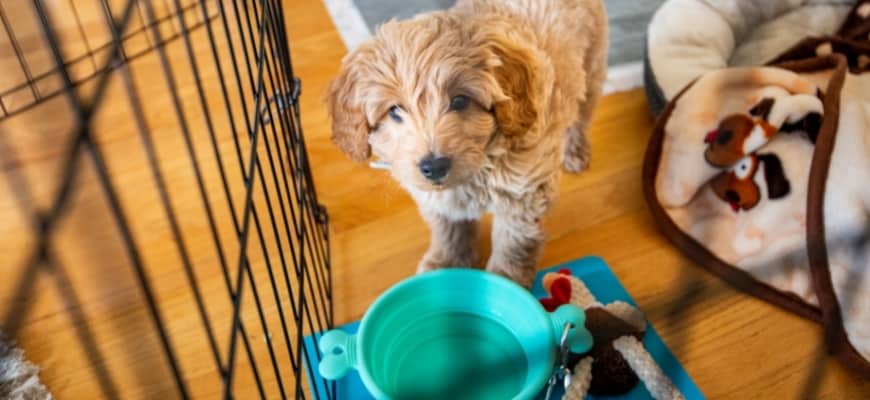
Remember to be consistent and use positive reinforcement when they go potty in the right spot. With time and patience, they will eventually get there again. To recap:
- Rule out any medical conditions that could cause regression.
- If your dog is regressing because of stress or anxiety, try adding an extra potty break into their routine, giving them a special toy or treat during potty time.
- Work with a behaviorist/trainer or veterinarian.
- If your dog is not ready to be fully potty trained yet, go back to basics and start from square one with their training.
- Be consistent and use positive reinforcement when they go potty in the right spot.
Frequently Asked Questions
At what age do puppies regress in their potty training?
Most puppies will have a potty training regression around 6 to 8 months old. However, some puppies may regress as early as 3 months or as late as 12 months. Dogs can also experience a potty training regression at any age if they are ill, injured, or otherwise not feeling well.
The best way to deal with potty training regression is to identify the cause and address it. If the puppy is teething, provide them with plenty of chew toys to keep them occupied. If the puppy is learning new skills, go back to basic training steps until they have mastered them.
If the puppy is uncomfortable or anxious, provide them with a safe place to relax and calm down. If the family has recently moved or the dog has been re-homed, give them time to adjust to their new surroundings. And if the dog is being housebroken too quickly, slow down the process and make it more manageable for them.
Is regression in potty training normal?
Most puppies will experience a potty training regression at some point. This is completely normal and can be caused by various factors, such as teething, learning new skills, being uncomfortable or anxious, moving, or being housebroken too quickly.
If your puppy experiences a potty training regression, don’t worry – it’s usually a temporary setback. Identify the cause of the regression and address it accordingly. With patience and perseverance, you can help your puppy overcome their regression and continue with their potty training.
Can dogs forget their training?
Dogs can forget their training for a variety of reasons, such as if they are not feeling well if they are uncomfortable or anxious, or if they are experiencing a potty training regression.
If your dog seems to have forgotten their training, go back to basics and remind them of the commands and steps they need to follow. With patience and perseverance, you can help your dog relearn what they have forgotten and continue on with their potty training.
Conclusion
Potty training regressions are common among dogs, but there are ways to overcome them. The key is to identify the cause of the regression and then take action to address it. If you’re unsure of what’s causing your dog’s regression, consult with your veterinarian for guidance. With a little patience and persistence, you’ll soon have your pup back on track!

